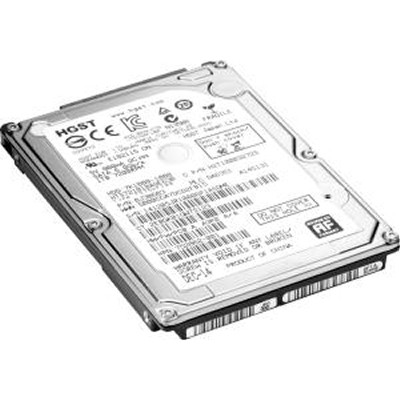HP
HP Y6P08AA - 2TB SSD SATA
$1,648.69
$1,268.22
(You save $380.47)
- SKU:
- Y6P08AA
- Condition:
- New
- Availability:
- Out of Stock
HP Solid State Drives (SSDs) for Workstations
Introduction
Solid State Drives (SSDs) are fast becoming a real force with respect to storage in the computer industry. With no moving parts storage is no longer bound by mechanical barriers to higher performance. HP SSDs for workstations offer overall performance significantly beyond that of SAS 15k rpm HDDs (Hard Disk Drives).
SSDs should be considered for most workstations since the number of processor cores and overall processing power can be limited by the I/O performance of the storage subsystem. For applications where 15k rpm HDDs deliver a performance improvement over standard SATA HDDs an HP SSD will likely deliver even better performance.
Solid State Drives measure Access Time in microseconds (65 to 85) as opposed to the best HDDs (15k rpm) being measured in milliseconds (~6ms); the SSD is about 70 times faster. In addition the extremely high average sustained read performance (up to 560MB/s) is considerably higher than the average sustained read performance of 15k rpm HDDs available today (180MB/s to 250MB/s*). The result is a much higher performance potential. Random IOPs (I/O Operations per second) are in a class of their own up to 20X faster than 15k rpm HDDs. This obviously helps with database operations but it also helps with OS and application performance. Users experience faster boot and data load times faster application loading and snappier system response. This is especially true where the workflow has a large percentage of random reads and writes.
SSDs help lower the acoustical emissions of the workstation. No moving parts means SSDs inherently have no acoustic emissions e.g. noise. Furthermore they consume much less power than Workstation class HDDs so less air is needed for cooling. The result is lower system fan speeds and therefore lower acoustics.
SSDs tend to be more rugged than hard drives with respect to shock and vibration because SSDs have no moving parts.
Performance
Performance varies by device based on the capacity. Higher capacity devices usually have better performance due to the increased number of channels to access the NAND components. Self-Encrypting Drives (SEDs) enable hardware encryption of the data without a performance penalty. Software encryption does incur a performance penalty in the range of 10-30%.
Enterprise class SSDs offer higher endurance power loss protection and other enterprise class features.
Introduction
Solid State Drives (SSDs) are fast becoming a real force with respect to storage in the computer industry. With no moving parts storage is no longer bound by mechanical barriers to higher performance. HP SSDs for workstations offer overall performance significantly beyond that of SAS 15k rpm HDDs (Hard Disk Drives).
SSDs should be considered for most workstations since the number of processor cores and overall processing power can be limited by the I/O performance of the storage subsystem. For applications where 15k rpm HDDs deliver a performance improvement over standard SATA HDDs an HP SSD will likely deliver even better performance.
Solid State Drives measure Access Time in microseconds (65 to 85) as opposed to the best HDDs (15k rpm) being measured in milliseconds (~6ms); the SSD is about 70 times faster. In addition the extremely high average sustained read performance (up to 560MB/s) is considerably higher than the average sustained read performance of 15k rpm HDDs available today (180MB/s to 250MB/s*). The result is a much higher performance potential. Random IOPs (I/O Operations per second) are in a class of their own up to 20X faster than 15k rpm HDDs. This obviously helps with database operations but it also helps with OS and application performance. Users experience faster boot and data load times faster application loading and snappier system response. This is especially true where the workflow has a large percentage of random reads and writes.
SSDs help lower the acoustical emissions of the workstation. No moving parts means SSDs inherently have no acoustic emissions e.g. noise. Furthermore they consume much less power than Workstation class HDDs so less air is needed for cooling. The result is lower system fan speeds and therefore lower acoustics.
SSDs tend to be more rugged than hard drives with respect to shock and vibration because SSDs have no moving parts.
Performance
Performance varies by device based on the capacity. Higher capacity devices usually have better performance due to the increased number of channels to access the NAND components. Self-Encrypting Drives (SEDs) enable hardware encryption of the data without a performance penalty. Software encryption does incur a performance penalty in the range of 10-30%.
Enterprise class SSDs offer higher endurance power loss protection and other enterprise class features.
| General Information | |
| Product Name | 2TB SSD SATA |
| Product Model | Y6P08AA |
| Product Type | Solid State Drive |
| Technical Information | |
| Storage Capacity | 2 TB |
| Interfaces/Ports | |
| Drive Interface | SATA |
| Drive Interface Standard | SATA/600 |
| Drive Performance | |
| Maximum Read Transfer Rate | 530 MB/s |
| Maximum Write Transfer Rate | 500 MB/s |
| Physical Characteristics | |
| Drive Type | Internal |
| Drive Width | 2.5" |
| Height | 2.8" |
| Width | 2.5" |
| Miscellaneous | |
| Device Supported | Workstation |
| Stock Details | |
| Manufacturer | HP |
| Manuf Part# | Y6P08AA |
| Price | $1125.30 |
| Availability | Special Order |














